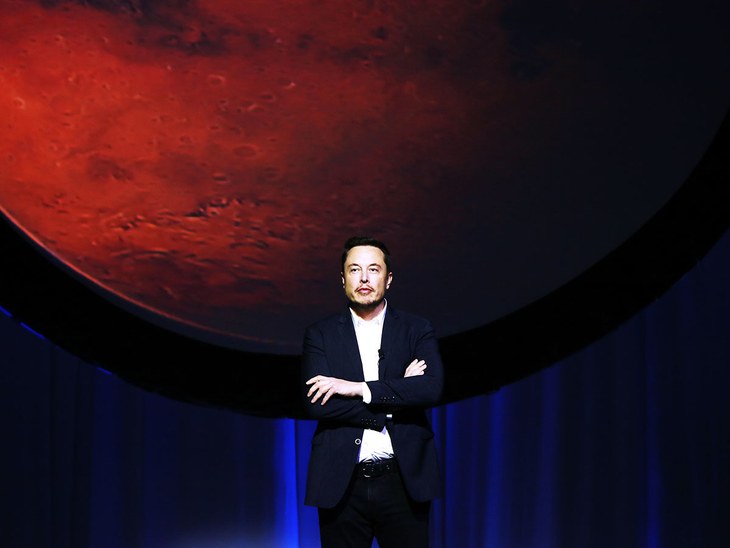Elon Musk has unilaterally decided that direct democracy will be the likely government on Mars once he creates a colony on our neighboring planet, but if a fledgling fascist takes over, he’ll probably still be open for business.
We’ve witnessed with his embrace of the Trump Administration that the Space X founder isn’t grounded enough to truly comprehend an epochal political moment, believing he can somehow manage a sociopathic President and his white nationalist Chief Strategist the way he does less-combustible things–like rockets, for instance.
Some of Musk’s announcements about space settlements and other schemes have seemed increasingly kooky over the last few years, but you could cut him some slack. After all, Thomas Edison truly believed he could use early 1900s technology to create a “spirit phone” to speak to the dead. Visionaries sometimes head down a blind alley so distracted they are by the world they hold in their hands. But Musk’s reaction to this singular challenge to American democracy has revealed a deep moral blind spot within him.
Prior to the ugly election cycle, Walter Isaacson said the “Benjamin Franklin of today is Musk,” but our kite-flying forefather understood one thing about tyranny that escapes his technological descendant: “We must, indeed, all hang together, or assuredly we shall all hang separately.”
• • •
In “Whitey on Mars,” Andrew Russell’s excellent Aeon essay, the writer argues that “white men in expensive, gleaming white spaceships” take priority over more earthly concerns when wealth is deeply unequal, especially in this era when such costly exploration has become significantly privatized. I’m sure Musk would counter that he is trying to address climate change by spearheading a transition to electric and solar (a point Russell also addresses), but there’s definitely much truth in the argument.
The opening:
There are good reasons to worry about the future of humanity. Do we have a future, and if so, how much and what kind? For most people, it’s easier to feel these existential concerns for our species than it is to do something about them. But some are taking action. On 27 September 2016, the SpaceX founder Elon Musk made a bold, direct claim: that, in order to survive an inevitable extinction event, humans would need to ‘become a space-faring civilisation and a multi-planetary species’. Pulses raced and the media swooned. Headlines appeared in the business and technology press about Musk’s plan to save humanity. Experts and laypeople alike debated details of the rockets, spacecraft and fuel needed for Musk’s journey to Mars. The excitement was palpable, and it was evident at the press conference. During the Q&A that followed the announcement, Musk said that his goal was to inspire humanity. One audience member yelled: ‘[Musk] inspires the shit out of us!’ Another offered him a kiss.
Musk’s plan to colonise Mars is a sign of an older and recurring social problem. What happens when the rich and powerful isolate themselves from everyday concerns? Musk wants to innovate and leave Earth, rather than to take care of it, or fix it, and stay. Like so many of his peers in the innovating and disrupting classes, Musk prefers to dwell in fantasy and science fiction, safely removed from the world of here and now. Musk is a utopian, in the original Greek meaning: ‘no place’. Repulsed by the world we all share, he dreams of a place that does not exist.•

